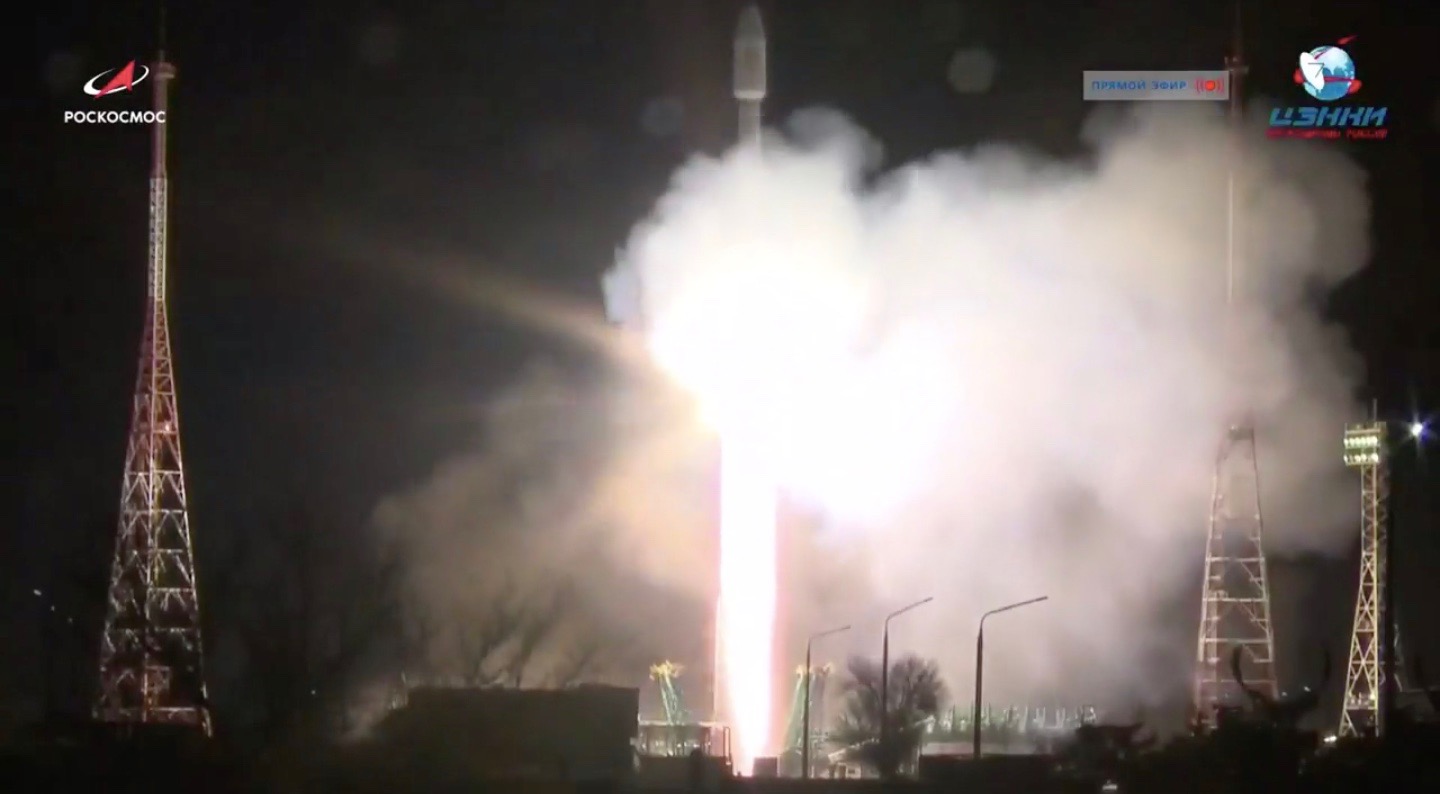OneWeb launches 34 more satellites for growing internet constellation
Breaking space news, the latest updates on rocket launches, skywatching events and more!
You are now subscribed
Your newsletter sign-up was successful
Want to add more newsletters?

Delivered daily
Daily Newsletter
Breaking space news, the latest updates on rocket launches, skywatching events and more!

Once a month
Watch This Space
Sign up to our monthly entertainment newsletter to keep up with all our coverage of the latest sci-fi and space movies, tv shows, games and books.

Once a week
Night Sky This Week
Discover this week's must-see night sky events, moon phases, and stunning astrophotos. Sign up for our skywatching newsletter and explore the universe with us!

Twice a month
Strange New Words
Space.com's Sci-Fi Reader's Club. Read a sci-fi short story every month and join a virtual community of fellow science fiction fans!
Satellite operator OneWeb lofted 34 more spacecraft today (March 21) to beef up its burgeoning broadband constellation.
The satellites launched atop a Soyuz rocket from Baikonur Cosmodrome in Kazakhstan at 1:06 p.m. EDT (1806 GMT; 10:06 p.m. local Baikonur time). All 34 spacecraft were successfully deployed into low Earth orbit by 3 hours and 45 minutes after liftoff, OneWeb representatives said.
Deployment from the Soyuz, which is operated by French company Arianespace, occurred at about 280 miles (450 kilometers) above our planet. The 325-lb. (147 kilograms) satellites will now cruise up to their operational orbit, which lies at an altitude of 745 miles (1,200 km).
Video: Watch Soyuz launch 34 OneWeb satellites into orbit!
In photos: OneWeb launches new global satellite internet constellation
This was the third launch for OneWeb, which lofted six satellites in February 2019 and 34 more last month, also aboard Soyuz rockets. And many more missions are coming: The company, which has headquarters in London and Virginia, intends to build an initial network of 650 satellites, which will provide internet service to people around the world.
That service will begin soon, if everything goes according to plan.
"OneWeb's first customer demos are scheduled for the end of 2020, and availability of commercial services, for sectors such as maritime, aviation, government and enterprise, [is] scheduled for the end of 2021," company representatives wrote in a prelaunch statement.
Breaking space news, the latest updates on rocket launches, skywatching events and more!
That statement also revealed that OneWeb had dedicated this launch to cosmonaut Alexei Leonov, who in 1965 performed the first-ever spacewalk. Leonov died in October 2019 at the age of 85.
OneWeb isn't the only company with satellite-internet ambitions, of course. SpaceX has already launched 360 spacecraft for its Starlink broadband constellation, which could eventually harbor tens of thousands of satellites. And Amazon wants to loft several thousand internet craft of its own.
Such projects are fundamentally changing the orbital population — and also, many astronomers worry, the night sky. Humanity has launched just 9,300 objects to space in all of history, according to the United Nations Office for Outer Space Affairs, and Starlink may end up dwarfing that number all by itself.
- OneWeb satellites inaugurate Florida factory
- SpaceX's Starlink constellation could swell by 30,000 more satellites
- Scientists propose new satellite tech to dodge space junk from megaconstellations
This story was updated at 6:45 p.m. EDT on March 21 with news of successful satellite deployment.
Mike Wall is the author of "Out There" (Grand Central Publishing, 2018; illustrated by Karl Tate), a book about the search for alien life. Follow him on Twitter @michaeldwall. Follow us on Twitter @Spacedotcom or Facebook.
OFFER: Save at least 56% with our latest magazine deal!
All About Space magazine takes you on an awe-inspiring journey through our solar system and beyond, from the amazing technology and spacecraft that enables humanity to venture into orbit, to the complexities of space science.

Michael Wall is a Senior Space Writer with Space.com and joined the team in 2010. He primarily covers exoplanets, spaceflight and military space, but has been known to dabble in the space art beat. His book about the search for alien life, "Out There," was published on Nov. 13, 2018. Before becoming a science writer, Michael worked as a herpetologist and wildlife biologist. He has a Ph.D. in evolutionary biology from the University of Sydney, Australia, a bachelor's degree from the University of Arizona, and a graduate certificate in science writing from the University of California, Santa Cruz. To find out what his latest project is, you can follow Michael on Twitter.



